The Economics and Statistics Division maintains archives of previous publications for accountability purposes, but makes no updates to keep these documents current with the latest data revisions from Statistics Canada. As a result, information in older documents may not be accurate. Please exercise caution when referring to older documents. For the latest information and historical data, please contact the individual listed to the right.
<--- Return to Archive
For additional information relating to this article, please contact:
September 26, 2019JOB VACANCIES, JUNE 2019 In the 3 months ending in June 2019, there were an average of 8,900 job vacancies in Nova Scotia (unadjusted for seasonality). This is 3,800 more than reported in the same period of 2018.
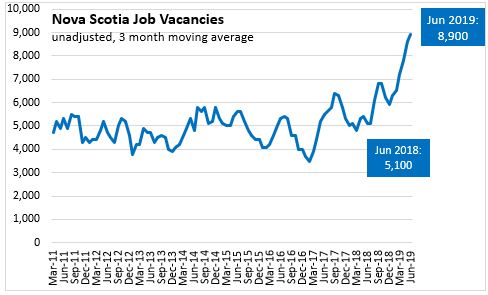
Nova Scotia's job vacancy rate, the share of labour demand that is unfilled, was 2.2 per cent in the three months ending in June. This is 0.9 percentage points higher than observed for the same period in 2018. Job vacancy rates were lower in the early months of 2018, but rose through the second half of the year. Nova Scotia's May job vacancy rate (revised to 2.2 per cent) reached a new high in records dating back to 2011.
The national job vacancy rate was 2.2 per cent, down from 2.3 per cent at this time last year.
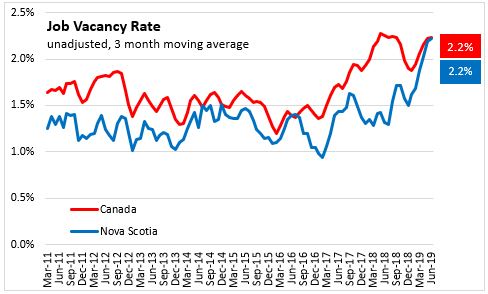
Across Canada, job vacancy rates are highest in British Columbia (2.9 per cent), followed by Quebec, New Brunswick and Nova Scotia. The lowest job vacancy rates were in Newfoundland and Labrador, Saskatchewan and Manitoba. Compared with the same period last year, the job vacancy rate has increased in six provinces with the largest increase in Nova Scotia.
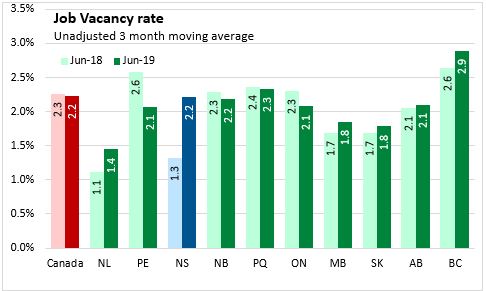
There was an average of 3.7 unemployed persons per job vacancy in Nova Scotia in the 3 months ending in June 2019, down from 7.0 in the three months leading up to June 2018. The ratio of unemployed persons per vacancy has fallen substantially over the last year, with the June result setting another new low since monthly job vacancy data started in 2011.
The national ratio of unemployed persons per job vacancy was 3.1, down from 3.3 in the same period of 2018.
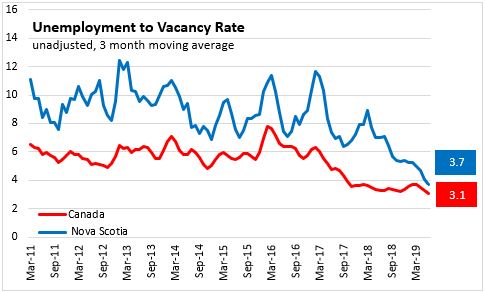
Six provinces reported fewer unemployed persons per job vacancy in June 2019 compared with the same period last year. The largest declines were in Newfoundland and Labrador and Nova Scotia.
British Columbia currently reports the tightest labour market conditions in Canada, with a job vacancy rate of 2.9 per cent and just 1.8 unemployed persons for each job vacancy. Newfoundland and Labrador reported the most labour market slack, with 11.3 unemployed persons for each job vacancy and a job vacancy rate of 1.4 per cent. Both Newfoundland and Labrador and Nova Scotia reported substantial tightening of labour markets over the last twelve months.
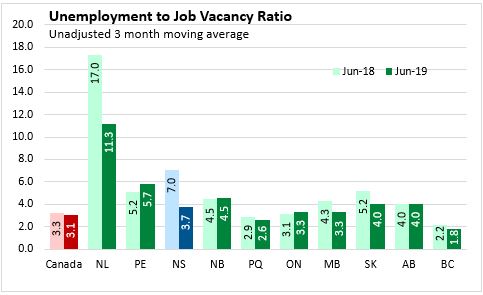
Source: Statistics Canada. Table 14-10-0224-01 Job vacancies, labour demand and job vacancy rate, three-month moving average, unadjusted for seasonality,
<--- Return to Archive